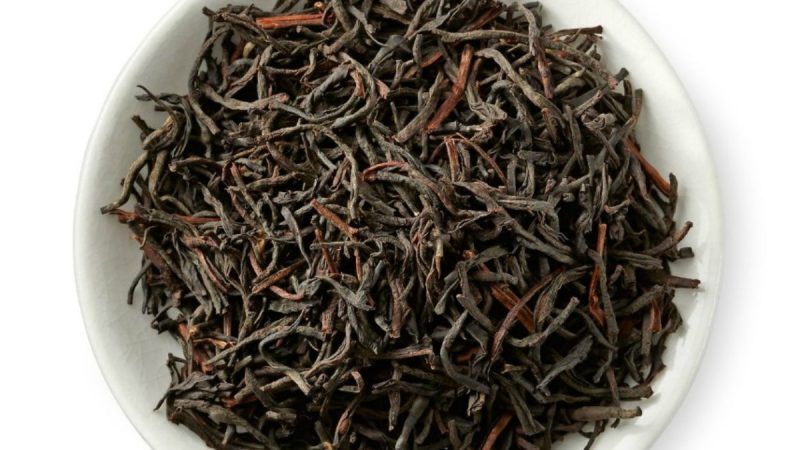Weed Warriors Who Mistook Tea for Marijuana Will Pay Their Victims $150,000
After seven years of litigation, a Kansas couple finally obtains some compensation for a comically inept drug raid.

The Leawood, Kansas, couple whose home was raided in 2012 after sheriff's deputies claimed that loose tea found in their trash was marijuana will receive $150,000 for their trouble under a settlement agreement with the Johnson County Sheriff's Office. The settlement—which caps seven years of litigation, including two trips to the U.S. Court of Appeals for the 10th Circuit—falls far short of the $7 million that Adlynn and Robert Harte originally sought. But it represents an implicit acknowledgment that the Hartes and their children suffered an outrageous invasion of their privacy and dignity in the service of a comically inept publicity stunt.
Here are some of the absurd facts that emerged as the couple's case was making its way through the courts:
• The family was targeted because Robert Harte bought supplies at a hydroponic gardening store in Kansas City. Harte was planning to grow vegetables with his son as a science project. But to Sgt. James Wingo of the Missouri State Highway Patrol, who was staking out the store, he looked like a cannabis kingpin.
• Wingo passed his hot tip to the Johnson County Sheriff's Office, which sat on the information for eight months. Deputies did not start investigating the Hartes until early April 2012, a couple of weeks before they planned to conduct a bunch of pot raids on April 20, the unofficial stoner holiday.
• The deputies never conducted a background investigation, which would have revealed not only that the Hartes had clean criminal records but that they were both former CIA employees with the highest level of security clearance.
• Desperate to justify a raid that had already been planned, deputies rummaged through the Hartes' garbage on three occasions. The first time around, Deputies Edward Blake and Mark Burns found "a small amount of wet, green vegetation," which they deemed innocuous.
• During his second inspection of the Hartes' trash, Burns found the same leaves, which he suddenly decided looked like "wet marijuana plant material." A drug field test supposedly confirmed the presence of THC.
• When Burns dove into the family's refuse a third time, just three days before the big 4/20 event, he found more leaves, which again supposedly tested positive for THC.
• The "wet marijuana plant material" was actually loose tea that Adlynn Harte favored. Burns later confessed that he had never seen loose tea before but thought, based on his training and experience, that it looked like marijuana leaves.
• A lab technician consulted after the raid disagreed, saying the leaves found in the Hartes' trash didn't "appear to be marijuana" to the unaided eye and didn't "look anything like marijuana leaves or stems" under a microscope.
• Field tests for drugs are notoriously unreliable. As 10th Circuit Judge Carlos Lucero noted after considering this case in 2017, one study "found a 70% false positive rate using this field test, with positive results obtained from substances including vanilla, peppermint, ginger, eucalyptus, cinnamon leaf, basil, thyme, lemon grass, lavender, organic oregano, organic spearmint, organic clove, patchouli, ginseng, a strip of newspaper, and even air."
• The label on the test kit used by Burns warns that its results "are only presumptive in nature" and should be confirmed by laboratory analysis. Yet then-Sheriff Frank Denning, who authorized the search of the Hartes' home without laboratory confirmation of the field test results, claimed he had never heard such tests could generate false positives, despite four decades in law enforcement and despite the warning on the label.
• The visit to the hydroponic store and the tea in the trash were the sole basis for the search warrant.
• On the day of the raid, 10th Circuit Judge Joel Carson noted in a 2019 opinion, "Bob opened the front door" shortly before 7:30 a.m., "and the deputies flooded in the foyer. Bob ended up on the ground with an assault rifle pointed at or near him. The deputies ordered Addie and the couple's two young children to sit cross-legged against a wall. A deputy eventually allowed the family to move to the living room couch where an armed deputy kept watch over them."
• It soon became clear that Johnson County's Keystone Cops had screwed up. "After searching the home for about fifteen to twenty minutes," Carson wrote, "the deputies found the hydroponic tomato garden that was readily visible from the exterior of the home through a front-facing basement window. And after ninety minutes of extensive searching, a couple of the deputies claimed to smell the 'faint odor of marijuana' at various places in the residence. A drug-detection dog showed up, but did not alert the officers to any other areas of the house requiring further searches. The dog's handler also did not smell marijuana."
• The deputies found no marijuana or any other evidence of illegal activity, even after searching the house "from stem to stern." But the same deputies who did not know the difference between tea and marijuana also did not realize there could be a legal explanation for the purchase of hydroponic gardening equipment. Blake "testified that up to that point in time, he had never seen a layout of a hydroponic-grow operation similar to Plaintiffs' that was not being used to grow marijuana."
Lucero summed up the situation well three years ago. "The defendants in this case caused an unjustified governmental intrusion into the Hartes' home based on nothing more than junk science, an incompetent investigation, and a publicity stunt," he wrote. "There was no probable cause at any step of the investigation. Not at the garden shop, not at the gathering of the tea leaves, and certainly not at the analytical stage when the officers willfully ignored directions to submit any presumed results to a laboratory for analysis. Full stop."



Show Comments (61)